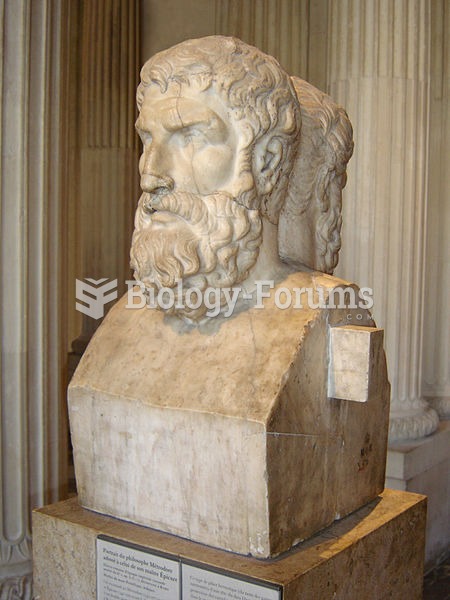|
|
|
Although the Roman numeral for the number 4 has always been taught to have been "IV," according to historians, the ancient Romans probably used "IIII" most of the time. This is partially backed up by the fact that early grandfather clocks displayed IIII for the number 4 instead of IV. Early clockmakers apparently thought that the IIII balanced out the VIII (used for the number 8) on the clock face and that it just looked better.
Opium has influenced much of the world's most popular literature. The following authors were all opium users, of varying degrees: Lewis Carroll, Charles, Dickens, Arthur Conan Doyle, and Oscar Wilde.
More than 150,000 Americans killed by cardiovascular disease are younger than the age of 65 years.
In 2012, nearly 24 milliion Americans, aged 12 and older, had abused an illicit drug, according to the National Institute on Drug Abuse (NIDA).
Medications that are definitely not safe to take when breastfeeding include radioactive drugs, antimetabolites, some cancer (chemotherapy) agents, bromocriptine, ergotamine, methotrexate, and cyclosporine.
 These monolithic figures from Easter Island suggest the contemplative nature of philosophy, which ca
These monolithic figures from Easter Island suggest the contemplative nature of philosophy, which ca
 Buddhist philosophy allows for the idea of reincarnation, as the self passes from body to body. The ...
Buddhist philosophy allows for the idea of reincarnation, as the self passes from body to body. The ...





